Digital Completions in Plant Modifications and Upgrades
Unlike greenfield or any new build construction projects, plant modifications and upgrades present a unique set of challenges. Work is carried out...
3 min read
 Lisa De Vellis, PE
:
Nov 13, 2024 1:22:46 PM
Lisa De Vellis, PE
:
Nov 13, 2024 1:22:46 PM
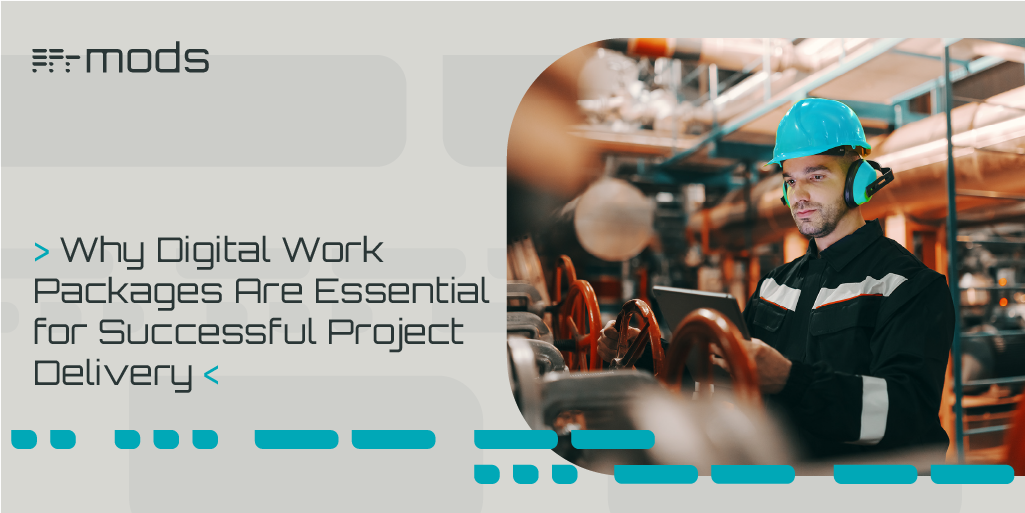
Digital work packages (DWPs) mitigate an obvious waste of time and resources in remote industrial construction projects, such as offshore maintenance or turnarounds on rurally located energy facilities. Despite addressing many of the complexities and inefficiencies that traditional methods fail to overcome, many remain reticent to transition to off-the-shelf, cloud-based DWPs. This blog addresses the myriad of project management, communication and data integration advantages that DWPs bring to project execution that lead to more streamlined and successful outcomes.
Industrial construction projects involve multiple stakeholders: office-based managers, engineers, procurement staff, onsite workers…the list goes on. When using traditional paper-based work packages, sharing updates and critical information as to the status of works can be slow and prone to errors. Getting signoffs demands turnaround time, which reduces time-on-tools, harming productivity. DWPs streamline communication and collaboration among and between teams, ensuring that all stakeholders have access to up-to-date information, in real-time, whether they are in the office or on the field.
Cloud-based platforms such as MODS Connect WorkPack enable seamless collaboration across teams, departments and locations – this applies globally. This interconnectedness allows stakeholders to be cognizant of and to address problems as soon as (if not before) they arise. This reduces delays and miscommunications and enables proactive decision making. Centralizing information in one accessible location via a DWP platform prevents the confusion that often results from scattered, inconsistent documentation and word-of-mouth comms.
Information in DWPs such as MODS Connect WorkPack is quality assured, reinforcing accountability, transparency and traceability throughout project execution. Productivity skyrockets, project performance is enhanced and reputations bolstered.
The complexity of industrial construction projects, particularly in brownfield settings, often lead to significant time and cost overruns. DWPs streamline processes associated with labor, materials and task issuance to the various teams with clear instructions. Digitally issued work packages such as those using the cloud-based MODS Connect WorkPack attach all necessary documentation. This creates a digital footprint that can be traced and viewed at will. This level of transparency ensures that resources are allocated effectively so that unanticipated bottlenecks can be avoided and milestones can be reliably met.
With MODS Connect WorkPack, project managers gain a high-level overview of the project’s status in real-time. They can track progress, monitor material usage, and identify potential delays early. This dynamic oversight significantly reduces downtime and increases efficiency, which is key to delivering projects on schedule. Further, teams on the ground – those responsible for executing the tasks – can be easily kept abreast of anything that might alter their ability to plan and carry out the works to spec. The dual top-down and bottom-up approach enabled by DWPs streamlines construction and maintenance projects, leading to improved productivity and profit outcomes.
One of the greatest benefits of using DWPs is the ability to leverage data for smarter decision-making. There is a misnomer that archival data are required prior to the onboarding of digital systems. MODS Connect WorkPack is a plug-and-play ready and can be immediately put to use, much in the way of traditional work packs: by inputting the necessary info work package by work package. But, the key is that MODS Connect WorkPack can work as a repository of sorts, accumulating information for future use. As information from various stages of the project is collected digitally over time, it is easier to analyze and optimize future decisions. It also enables the onboarding of more sophisticated efficiency-enhancing tools in the future.
With DWPs, project managers and other stakeholders can easily track performance metrics, evaluate productivity and forecast potential risks. Access to project data – both past and present – allows organizations to better estimate future costs, timelines and resource requirements. As a result, teams can plan with greater accuracy, reducing uncertainties and ensuring smoother project execution.
When using paper-based work packages, it can be challenging to track much of the minutia that enables the work package to be carried out. For example, monitoring the materials status, knowing who is responsible for specific tasks, and ensuring upstream processes are complete and communicating status to downstream workflows can become laborious as well as lead to missed deadlines and accountability issues. Digital work packages create an audit trail that clearly documents the required people, materials and resources, as well as preceding and subsequent scheduling details, and who did what and when. This transparency fosters accountability among teams, as progress is constantly monitored and recorded.
Further, with everything logged digitally in systems like MODS Connect WorkPack, proactively identifying inefficiencies so as to adjust workflows and continually improve processes is possible because it is based on concrete evidence rather than guesswork.
The shift to digital systems including digital work packages also promotes sustainability via the streamlining of time and material resources, which reduces waste (not to mention paper!). For industries striving to meet environmental goals, cutting down on wasted resources including the unnecessary transport of people, materials and documentation is a step in the right direction. Further, digitalization minimizes errors and rework, leading to substantial cost savings over the life of a project.
By reducing waste, cutting rework, and maximizing efficiency, DWPs provide both economic and environmental benefits, making them an ideal solution to promote efficiency, profitability and sustainability in industrial construction projects.
Digital work package software such as MODS Connect WorkPack transform industrial construction execution by enhancing communication, improving project management, enabling data-driven decisions, fostering accountability and driving sustainability. In an industry with thin and volatile margins, and complex project scope, adopting DWPs can mean the difference between successful delivery and costly overruns.
Want to learn more? Join our webinar.
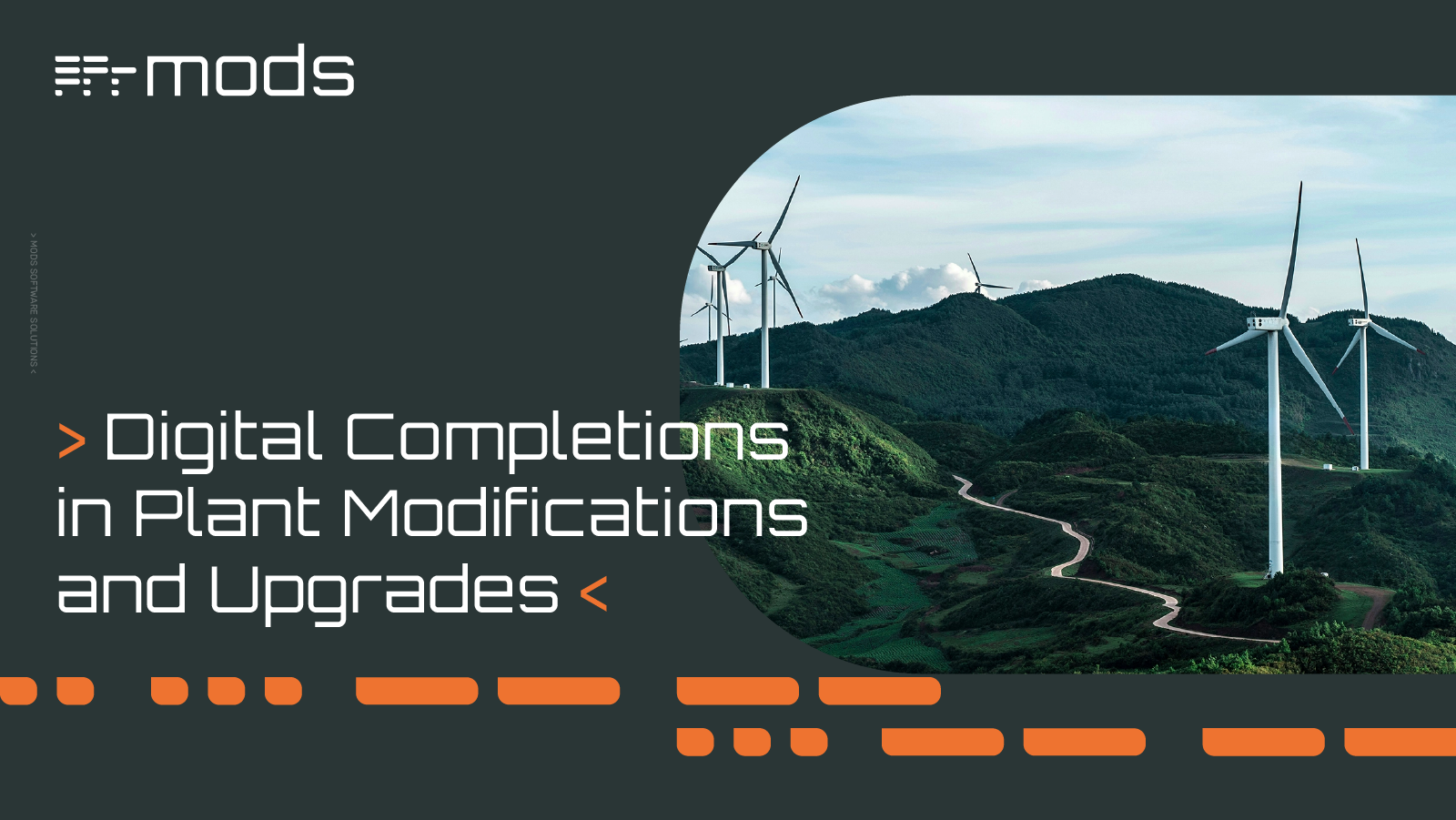
Unlike greenfield or any new build construction projects, plant modifications and upgrades present a unique set of challenges. Work is carried out...

Turnarounds and shutdowns are among the most critical—and stressful—phases in the management and operation of industrial assets. These planned...
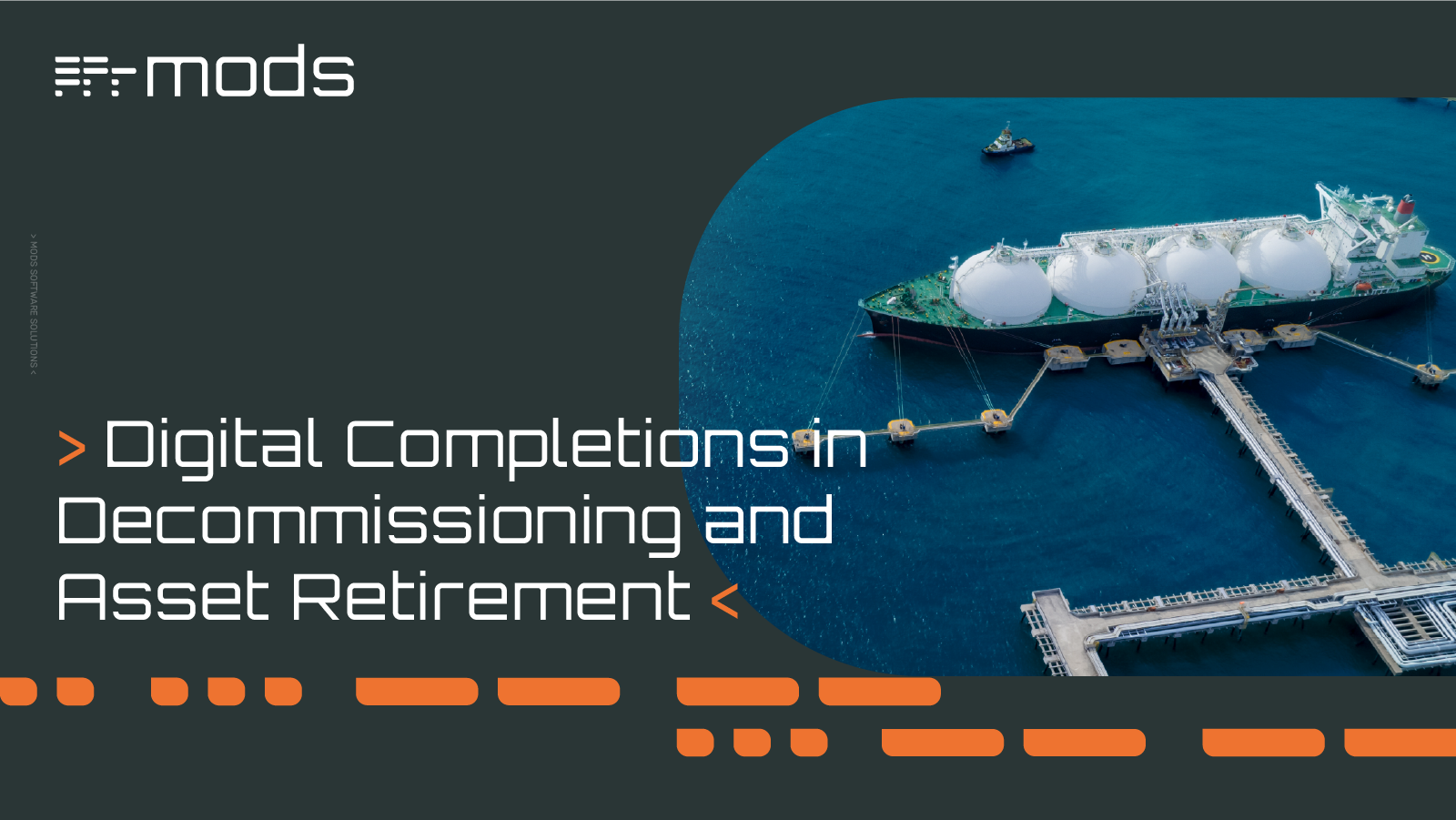
Offshore decommissioning and asset retirement present significant logistical, regulatory, safety, fiscal and reputational challenges. The process of...
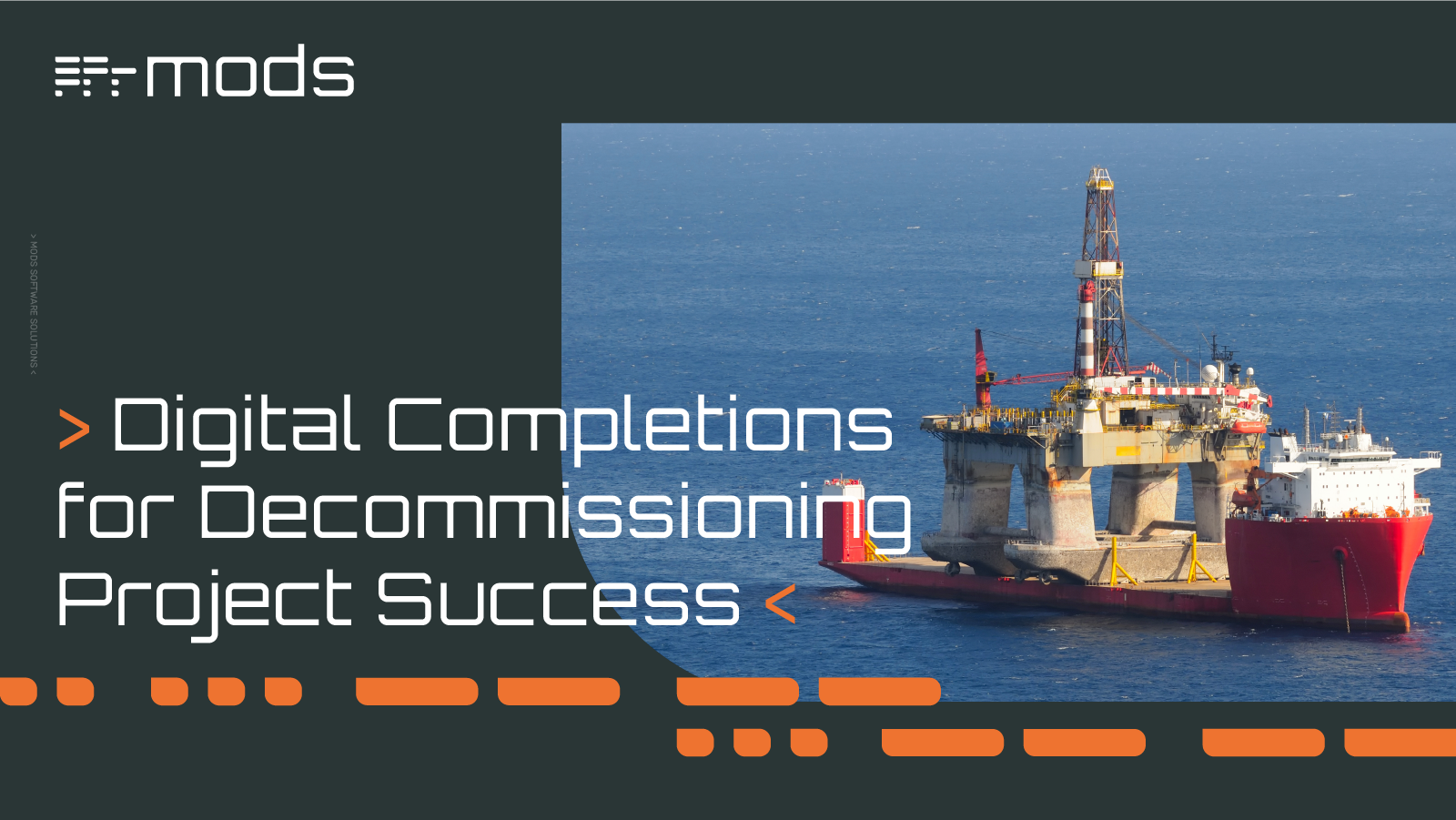
Offshore decommissioning projects present unique logistical challenges and safety complexities. Dismantling large structures and recovering topsides...
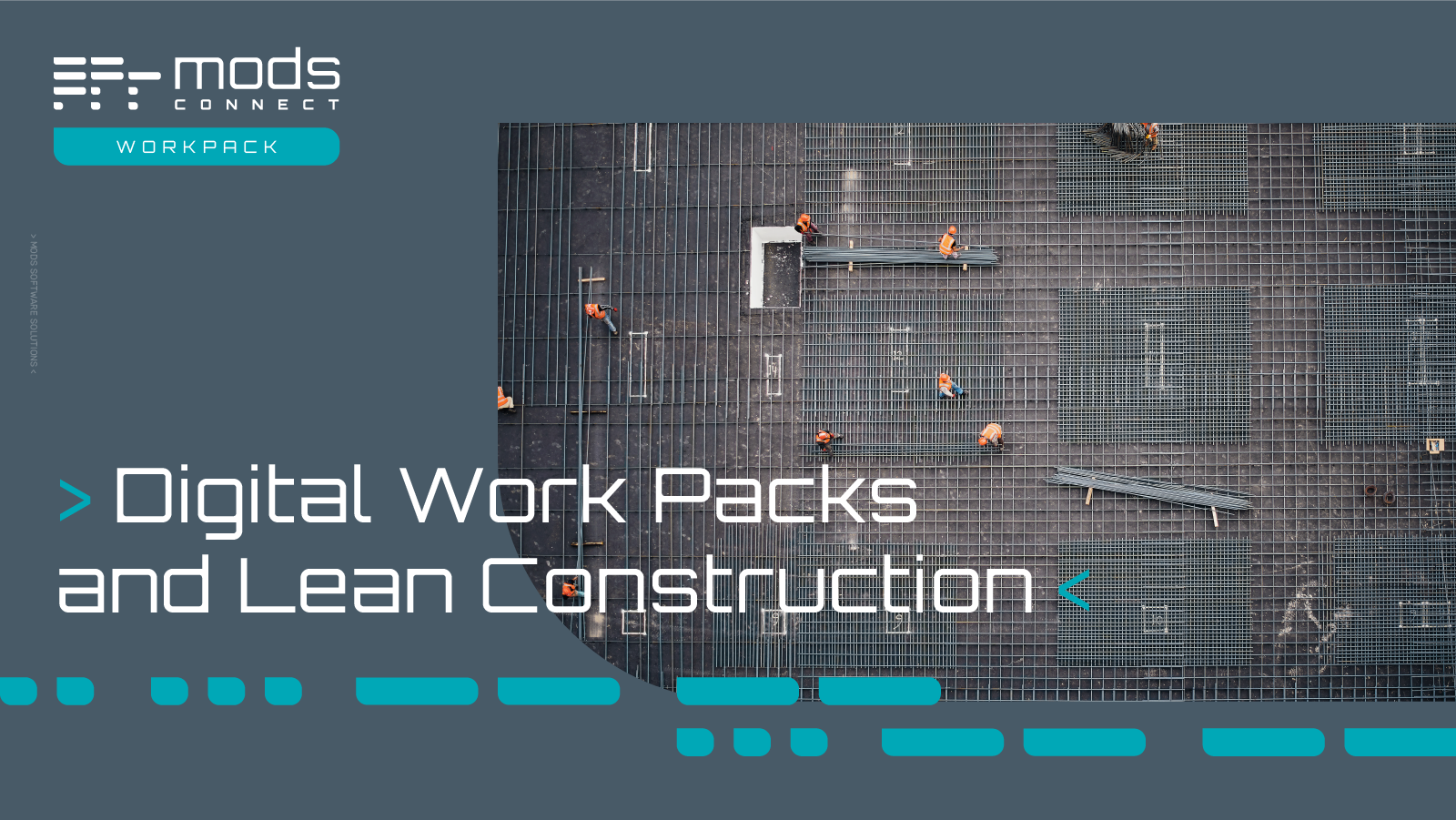
Efficiency and optimization are the hallmarks of Lean construction. The role of digital infrastructure cannot be overstated as an essential tool in...

We’ve talked a lot about digital work packages (DWPs). Same goes for Advanced Work Packaging (AWP). DWPs are an efficiency-enhancing tool and AWP is...